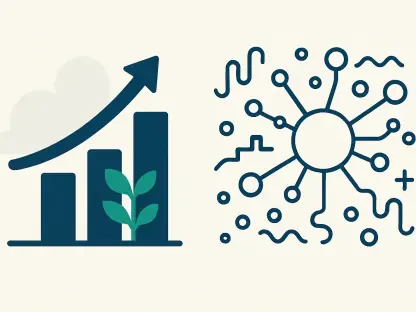In the complex world of insurance, a staggering number of policyholders face claim denials each year, often leaving them financially stranded after unexpected disasters, and one such case involving a homeowner from Sunland Park, New Mexico, has ignited a firestorm of debate about whether major insurers, specifically State Farm, are skewing their claims processes to favor profit over fairness. This roundup dives into diverse opinions, insights, and tips from industry observers, legal professionals, and consumer advocates to unpack the allegations of systemic claim denials and undervaluations. The purpose is to provide a balanced view of this contentious issue, exploring whether these practices are isolated or indicative of a broader trend in the insurance sector, and to equip readers with actionable knowledge to navigate their own claims.
Unpacking Diverse Perspectives on Claims Practices
Industry Analysts Weigh In on Profit-Driven Strategies
A significant point of contention revolves around the accusation that some insurance companies have transformed their claims departments into profit centers. Industry analysts note that large insurers, including State Farm, face pressure to meet financial targets, which can sometimes result in policies that prioritize minimizing payouts. Reports suggest that certain systems, allegedly designed with input from consulting firms, aim to streamline claims processing but may inadvertently encourage denials or lower settlements to boost bottom lines.
This perspective is not without critique, as some analysts argue that efficiency in claims handling is a legitimate business goal. They point out that insurers must balance policyholder compensation with operational sustainability, especially in an era of rising natural disaster costs. However, the concern remains that when financial incentives for adjusters are tied to reduced payouts, the trust between insurer and insured could be eroded, creating a rift that impacts customer loyalty.
A contrasting view from consumer-focused research groups highlights that such strategies, if proven, represent a fundamental betrayal of the insurance promise. These groups argue that the industry’s core purpose is to provide security, not to exploit vulnerabilities through rigid, profit-oriented frameworks. This debate underscores the need for transparency in how claims targets are set and achieved.
Legal Experts Discuss Litigation Tactics and Policyholder Challenges
Legal professionals familiar with insurance disputes have raised alarms about aggressive litigation tactics allegedly used by some insurers to deter policyholders from contesting denials. Observations from attorneys handling similar cases indicate that tactics such as exhaustive legal battles or discouraging representation can overwhelm claimants, forcing many to abandon valid claims due to financial or emotional strain. Such strategies, they argue, tilt the playing field heavily in favor of corporate interests.
On the flip side, some legal commentators suggest that insurers may view these approaches as necessary to combat fraudulent or exaggerated claims, which burden the system and raise premiums for all. They note that robust defense mechanisms can protect against unwarranted payouts, though they caution that the line between deterrence and intimidation is thin. The challenge lies in ensuring that genuine claimants are not unjustly penalized in the process.
A growing consensus among legal advocates is the call for stronger consumer protections to level access to justice. Suggestions include caps on litigation costs for policyholders or mandatory mediation before lawsuits escalate. These ideas aim to address the power imbalance, ensuring that challenging a denial does not become an insurmountable hurdle for the average person.
Consumer Advocates Highlight Systemic Undervaluation Concerns
Consumer advocacy groups have voiced strong concerns over allegations that some insurers rely on preset claim values tied to profit goals rather than actual damage assessments. They argue that this practice, if widespread, undermines the integrity of insurance by failing to reflect the true cost of repairs or losses. Such systemic undervaluation, they contend, disproportionately affects vulnerable policyholders who lack the resources to push back.
Differing opinions emerge from within advocacy circles about the scope of this issue. While some believe it reflects a pervasive industry shift toward profitability, others suggest that not all insurers adopt these methods, and the problem may be more pronounced among larger players with complex operational structures. This variance prompts calls for targeted investigations to pinpoint where and how these practices occur.
A practical takeaway from advocates is the importance of regulatory oversight to enforce fair valuation standards. They propose that independent audits of claims processes could serve as a check against arbitrary limits on payouts. Until such measures are in place, policyholders are urged to remain vigilant, documenting damages thoroughly to counter potential undervaluations during claims assessments.
Practical Tips for Policyholders Navigating Claims
Insights gathered from various sources offer a roadmap for policyholders facing the daunting task of filing or contesting claims. A common recommendation is to meticulously review policy terms before signing, ensuring clarity on coverage limits and exclusions that might later justify a denial. Understanding the fine print can prevent surprises when a claim is needed most.
Another widely shared tip is the value of comprehensive documentation. Legal and consumer advisors stress that detailed records—photos, receipts, and repair estimates—can bolster a claim’s legitimacy and counter attempts to undervalue damages. This preparation can make a significant difference in negotiations or disputes with adjusters.
Finally, many sources emphasize the benefit of seeking professional advice when faced with denials. Engaging an attorney or public adjuster, though potentially costly, can provide leverage against intimidating tactics or unfair settlements. Comparing insurers’ reputations for claims handling before purchasing a policy is also advised as a proactive step to avoid future conflicts.
Reflecting on the Debate and Next Steps
Looking back, the discussions surrounding insurance claims practices reveal a deep divide between the pursuit of corporate profitability and the ethical obligation to ensure fairness for policyholders. Opinions from industry analysts, legal experts, and consumer advocates paint a complex picture, where legitimate business needs clash with accusations of systemic bias against claimants. The insights gathered underscore a critical tension that demands resolution to restore trust in the sector.
Moving forward, a key step for stakeholders is to push for greater transparency in how claims are processed and evaluated. Encouraging dialogue between regulators, insurers, and policyholders could lead to reforms that balance efficiency with equity. Additionally, individuals are advised to educate themselves on their rights and to advocate for policies that prioritize consumer protection. For those eager to delve deeper, exploring resources from consumer advocacy organizations or legal aid services can provide further guidance on navigating insurance challenges.









